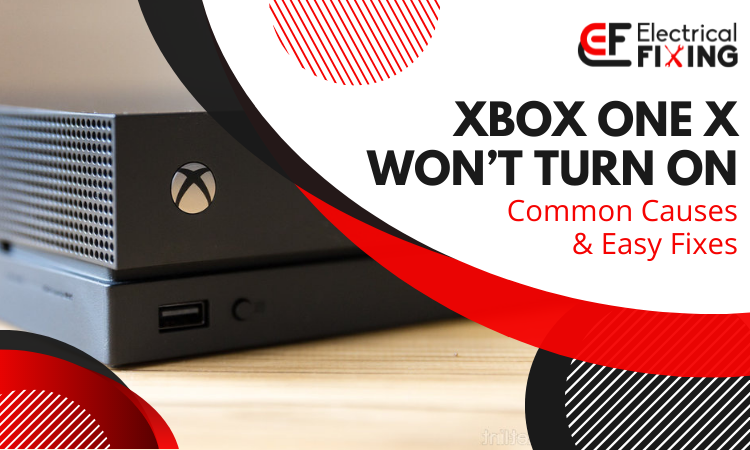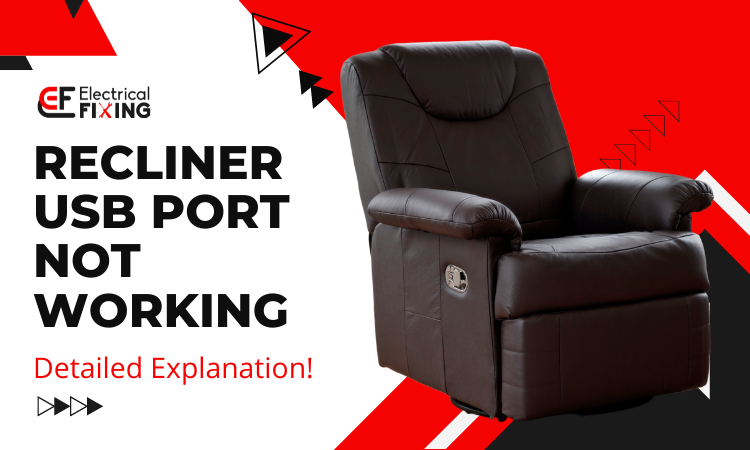Hey there! This post contains affiliate links to products. We may receive a commission for purchases made through these links. But it never influences our product selection process.
It’s not rare to see one channel failing in your amplifier. In fact, it’s among the most basic complaints to face if you own one. Although it’s quite infuriating the remedies for it isn’t so difficult.
Amplifier one channel not working?
If one channel isn’t responding unplug and reverse the wire from the initial position. If this fails to fix the issues, the problem can be within the fuse or short-circuit. Short-circuit can be solved by severing wires. A blown fuse needs to be replaced. Protection mode can also be the cause.
Seems confusing? Then read our detailed explanations until the end. Who knows maybe you’ll get rid of this issue once and for all.
Let’s begin!
Power Amplifier One Channel Not Working
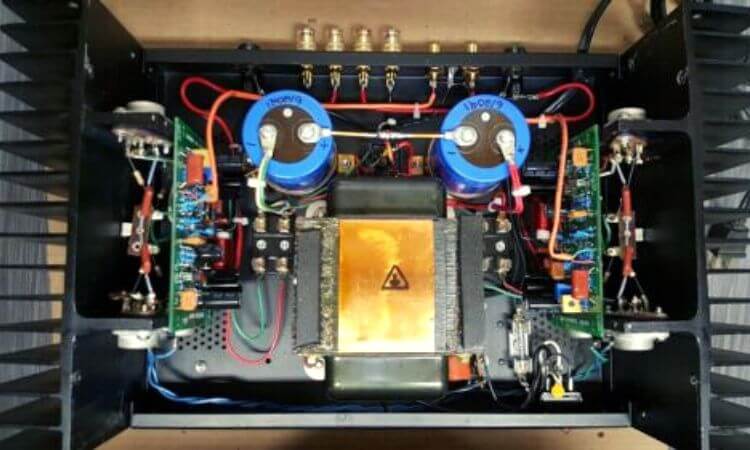
An amplifier is an important component of your home sound system. It doesn’t only provides power to the speaker systems. It also lets the user choose and control a sound source.
An amplifier has two channels, one on each side. They make the sound audible to you. On some occasions, you may find the amplifier right channel not working.
Well, It is rarely essential to be the right one. It can be either of the two. You may wonder why is only one channel working on my amp. The answer could be more than one here.
1 channel not working on amp can happen for a few reasons. But worry not, there are solutions for them as well. So, if you’re curious why the stereo amp one channel not working let’s begin.
Cause 1: Bad Connection
In most cases, one channel fails to work because of bad connections. It’s probably because the plugs are not connected properly.
Loose connections and improper wirings are common mistakes. In such instances, the remedy is quite straightforward.
Solution:
All you have to do is swap out the plugs in the reverse position. And then back to the original position. But for that first, you need to mark which amplifier channel not working.
Remember the designated wires for the right and left channels. Now, turn off the amplifier and unplug the wires from both channels. Replug them in reverse places.
If you don’t hear sound from the marked speaker/channel then it’s gone bad. But if it works with exchanged wire then The concern lies with the wire itself.
You can be more certain if you double-check the wire resistance with a multimeter. Not confident about which one to pick? Here’s our recommendation-
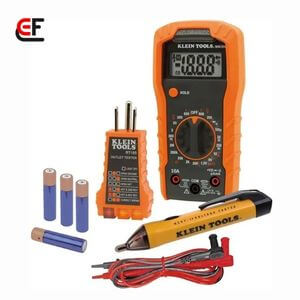
Klein Tools 69149P Electrical Test Kit
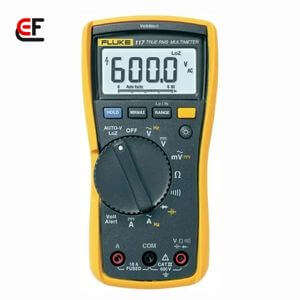
Fluke 117 Digital Multimeter
Check out the speaker wire as well. If the resistance measures are little to non-existence or very high, it’s gone bad. You may have to fix the wire or buy a new one.
Cause 2: Short Circuit
Short circuit in the speaker wires can be the reason why amp channels not working. A short circuit in the wires causes power losses.
This means your device is not getting the power and thus will not work. If this is true, you need to fix the short circuit.
Solution:
Turn all the loudspeakers around. Now do a check-up on the terminals. They are on the backside of the amplifier. If you see the positive and negative terminals connected by any wire then it’s short-circuited.
You have to remove the wire first. Then reconnect the wires again in their designated places. For safety reasons, it’s better to keep the wires unplugged when they’re not in use. It prevents short circuits.
Cause 3: Blown Fuse
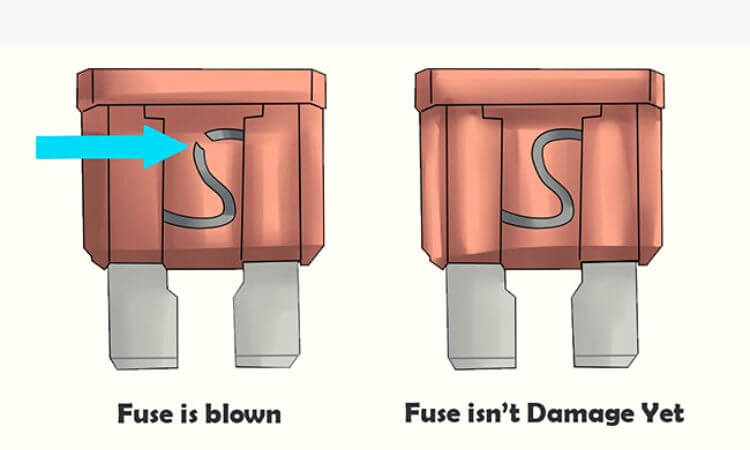
If the problem isn’t short-circuiting then it could be a blown fuse. It can cause either of the channel to fail to function. The concern here is that the main voltage coming from the circuit is vulnerable.
To begin with, it’s due to over-current or electrical over-voltage stress the fuse got blown. A blown fuse needs to be replaced for your amplifier channel to work again.
Solution:
Unplug the blown fuse from the holder using a screwdriver. Set it aside. Now, take your multimeter to measure the voltage of the new fuse.
Touch the fuse’s both sides with the terminals on the multimeter. If the numbers on the screen are close to zero then it’s ready to replace. If the figures do not approach closer to zero, switch to another fuse.
It’s better to use a fast blow fuse than using a slow blow fuse. Because they react faster to overcurrent. Now, position it into the fuse holder and you’re done.
Cause 4: Amplifier Is In Protection Mode
The protection mode in the amplifier is built to prevent internal damage. Internal damages can occur from faulty components, airflow lacking, or blown fuse.
If it’s in protection mode one channel can fail to function. There are several ways to determine if the amplifier is in protection mode. You’ll see the power lights blink before they go off.
The power light will remain unlit at the shutdown condition. Much like the blinking light on my battery charger. To cancel the protection mode follow the instructions below.
Solution:
Turn off the amplifier and unplug the speakers. Keep it open in the airflow for some minutes to cool it off. It’s because overheating is one of the main reasons why the amplifier goes protection mode.
After it cools off plug the speakers and turns the amplifier on. If this doesn’t solve the issue it probably needs a better ground wire. The ground cables from the amplifiers are usually very short.
Thus it fails to deliver the power it requires. In the process, the wire gets too hot and the protection mode gets on. So, better get a bigger ground wire. Be careful with the work because the ground wire can shock you.
Frequently Asked Questions (FAQs)
What To Do If Technics Amp One Channel Not Working?
First try reversing and unplugging the wires. If this doesn’t solve the issue push the switches on and off a few times. Technic switches can go bad really soon. Use lube if necessary.
How Long Does An Amplifier Last?
An audio amplifier can stay functional for over 10 to 20 years. A solid-state and tube amplifier can stay good for 30 years. But it requires retubing in every 2 years.
Is It Okay To Leave The Amplifier On All The Time?
It’s better that you don’t. Amplifiers get overheated if you leave them on for too long. The overheating causes damage to internal components and shortens its lifespan. It should be turned off for at least one hour after 6-8 hours of use.
Can Rust And Dirt Be A Reason Why Amp One Channel Not Working?
If the wire’s jack is heavily rusted or dirtied it may fail to function. In such circumstances use electrical contact cleaners to remove the dirt or rust. Use compressed air to clean the jacks if necessary.
Conclusion
So which one of the mentioned reasons why your amplifier one channel not working? Have you figured out the cause yet?
If it still seems puzzling take it to a mechanic shop. It’s better to leave the rest to the professionals.
Good luck with it!
Hey, I’m Steven Jones, the founder, and writer of this site. I have worked in Electrical for the past 5 years. I also know how to save energy and how to troubleshoot our electrical devices. I hope you enjoy my blog.


